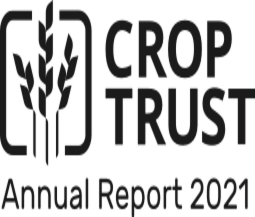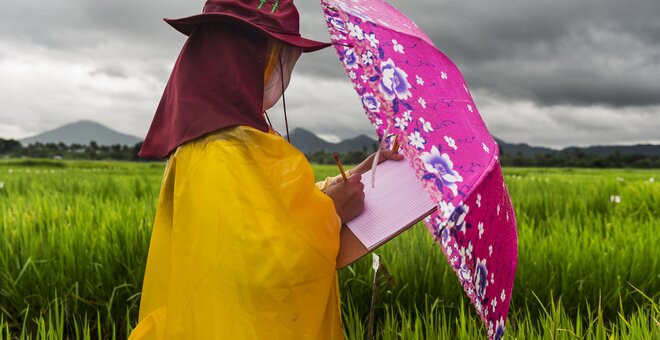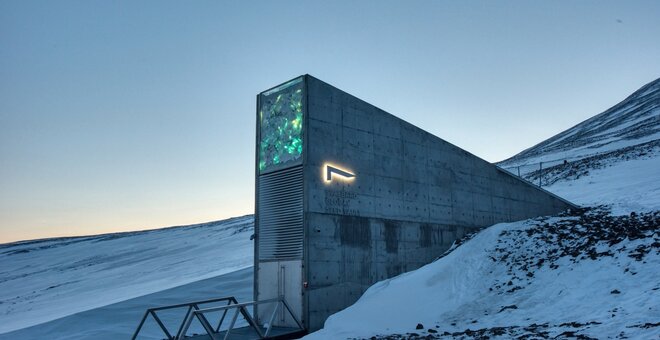Building BOLDly on Success
Launched in September 2021, Biodiversity for Opportunities, Livelihoods and Development (BOLD) is a 10-year project, funded by the Government of Norway, that will build on the successes and achievements of the Crop Wild Relatives Project to strengthen food and nutrition security worldwide.
Key components include strengthening the capacities of 15 national genebanks; facilitating the use of new diversity of key crops by plant breeders and farmers to enhance climate change adaptation and food security; research into ways to enhance farmers’ access to crop diversity; and supporting the backup of genebank collections in the Svalbard Global Seed Vault.
At A Glance
The BOLD Project will help safeguard crop diversity in national genebanks, and facilitate its use by breeders, smallholder farmers and researchers to develop new crop varieties with the aim of boosting farmers’ resilience to climate change and increasing food and nutrition security.
- PROJECT TITLE: Biodiversity for Opportunities, Livelihoods and Development
- HIGHLIGHTS FROM 2021: Project launched in September 2021; competitive grants scheme for backing up genebank collections in the Svalbard Global Seed Vault launched in October; Emergency Reserve fund for genebanks under imminent threat launched in November.
- FUNDING PARTNER: Government of Norway
- PARTNERS: National genebanks and breeding programs, CGIAR centers and other advanced research institutions, universities, farmer associations, NGOs and the Plant Treaty
BOLD by Name and by Nature
The BOLD Project is picking up where the Crop Wild Relatives (CWR) Project left off—using the diversity collected and generated and making sure that it reaches the plant breeders, farmers and others who can benefit from its use.
The project is organized into five complementary elements that will be facilitated by the Crop Trust and lead partners.
Strengthening National Genebanks
BOLD will strengthen the capacity of 15 partner national genebanks to manage, document, conserve and duplicate crop diversity and to make it available to farmers and breeders. Actions will include upgrading facilities and equipment, training staff on genebank operations and policies and engaging user groups such as plant breeders, farmers and extension services.
Using Crop Diversity to Combat the Effects of Climate Change
The project is expanding on the pre-breeding and evaluation partnerships on alfalfa, barley, durum wheat, finger millet, grasspea, potato and rice that were developed through the CWR Project. The aim is to facilitate the use of the new diversity of these crops—such as cold tolerance in alfalfa and disease resistance in potato—by breeders and farmers for climate change adaptation and food security in partner countries. The work will include on-farm trials and other participatory approaches to ensure a more effective flow of novel crop diversity to breeders and farmers.
Strengthening Seed Systems
All this new diversity will achieve little if it is not placed in the hands of the farmers on whom food and nutrition security depends. This research component, led by the Norwegian University of Life Sciences, will explore different ways that crop diversity can be readily accessed by farmers, by developing models for strengthening the connection between genebanks and the intermediaries that get the seeds into farmers’ hands—from plant breeders and seed companies to other farmers and local markets. The project will support innovative pilot efforts by national genebanks in four partner countries in Asia, Latin America and sub-Saharan Africa to actively contribute diversity to national and regional seed systems. This experience will be used to develop models that other national programs can adopt and adapt.
Safeguarding Crop Diversity Long Term
Backing up crop diversity from low- and middle-income countries in the Svalbard Global Seed Vault is vital to ensure its continued availability to farmers, breeders and researchers. To assist in this, BOLD will work with at least 20 crop diversity collections holders in low- and middle-income countries eligible to receive official development assistance. They will receive technical and financial support for seed regeneration and safety duplication in the Vault.
Creating Connections, Celebrating Outcomes Together
Long-term, consistent financial, legal, technical and institutional support at national and international levels is essential for the effective functioning of the global crop diversity conservation effort. The project will contribute to achieving this by creating a sustainable Community of Practice among partners to improve communications and outreach capacity.
National and global campaigns will target a range of stakeholders, especially farmers, seed system actors, and policymakers, proactively communicating the results of BOLD and highlighting the vital role of project partners in the conservation and use of crop diversity in support of climate change adaptation and food security.
Emergency Relief for Crop Collections in Crisis
Natural disasters, political crises, pest and disease outbreaks, equipment failure and, most recently, the challenges caused by the global pandemic can all precipitate catastrophic losses of the invaluable resources genebanks conserve.
Until now, there has been no established source of funds to help genebanks deal with such calamities. But in 2021, the Crop Trust and the Secretariat of the International Treaty on Plant Genetic Resources for Food and Agriculture (the Plant Treaty) launched an Emergency Reserve to provide a financial lifeline to genebanks facing urgent threats, supported by the Government of Norway, through BOLD, and the Government of Italy, through the Plant Treaty.
Related news and resources
Biodiversity for Food Security: A BOLD Approach
A groundbreaking 10-year project is launching to improve food security and climate resilience globally and support livelihoods, health and wellbeing.
“Biodiversity for Opportunities, Livelihoods and Development,” or BOLD, a...
1 Oct 2021
1 Oct 2021
Announcing Support to Back up Crop Collections in the Svalbard Global Seed Vault
Because seeds don’t last forever, not even in genebanks, the Crop Trust and partners will help genebanks and other seed collection holders in their efforts to regenerate and back up crop diversity collections in the Svalbard...
4 Oct 2021
4 Oct 2021













